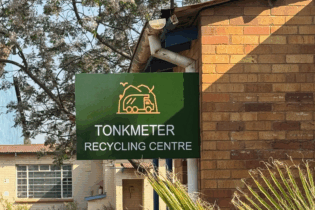In the most recent case brought by the RMI attempting to interdict the implementation of the REDISA plan, Judge Bam has found for REDISA on all counts. In his judgment delivered today, 30th January 2013, he found against the applicants and dismissed their case with costs.
In particular, he found that (a) the Minister was perfectly entitled to withdraw and reissue the plan, (b) that the arguments against including solid tyres were unjustified, and (c) that the contention that REDISA was not of standing to submit a plan was not supported. In addition, the judge disagreed that an interdict should have been granted in November 2012.Hermannn Erdmann, CEO of REDISA, commented “We are of course very pleased with the outcome, which vindicates our position completely. Every challenge thrown at us by the tyre industry has been thrown out by the courts; even the one point on which the temporary interdict was granted in November last year has been overturned. The judge this morning concluded – rightly in our view – that adding waste reduction targets to the plan could have no material impact on the implementation of the plan.” Erdmann added that the various court cases brought against REDISA by various players in the tyre industry had done nothing other than cost millions in legal fees and lost man-hours and delay the implementation of waste tyre management. “The costs will ultimately be borne by the public,” he said, “whether through industry or industry associations spending customer and member funds, or through the continuing effects of not addressing the waste tyre problem. The confusion regarding the on-again off-again status of the REDISA plan will cause great hardship to some of the participants in the industry who have not provided for the waste tyre management fees,” said Erdmann, “and on the other hand some tyre producers have been collecting funds directly – or indirectly through price increases. It is really a very unfortunate situation that has been created.”
THE NEED: Waste tyres pose an environmental problem, both as pollutants and as breeding grounds for mosquitoes and vermin. However, there is as yet no effective technology for disposing of tyres in an environmentally friendly yet economically viable way. The need for subsidised research and development, collection and recycling is therefore imperative. The opportunity for generating new income streams and new industry businesses aligned to the recycling of waste tyres is of paramount importance.
THE SOLUTION: REDISA aims to remove waste tyres from the South African environment. A levy charged to the manufacturer will effectively subsidise the collection and recycling processes. By giving the tyres a value for recycling, entrepreneurs will be able to build a business out of collecting tyres from their community and delivering them to a collection point. A network of collection depots and recyclers will be established and REDISA will provide training and support for the SMMEs that respond to the opportunity presented by the initiative. The REDISA plan supports the creation of a sustainable recycling industry and deals with a major and problematic waste product that has so far not been tackled effectively or efficiently. The new law will create much-needed income opportunities for disadvantaged communities through the fostering of small and medium sized businesses all over the country. The income generated from a rand-per-kilogram levy charged to tyre producers and importers will be used, primarily, to stimulate start-up businesses around the collection, transportation, storage and recycling of the waste. It will also be used for research and development, training and monitoring as well as overall community upfliftment. Additionally, bursaries, a youth board and a significant programme of empowerment interventions form part of the REDISA plan roll-out. REDISA aims to remove waste tyres from the South African environment. By giving the tyres a value for recycling, entrepreneurs will be able to build a business out of collecting tyres from their community and delivering them to a collection point. A network of collection depots and recyclers will be established and REDISA will provide training and support for the SMMEs that respond to the opportunity presented by the initiative.





